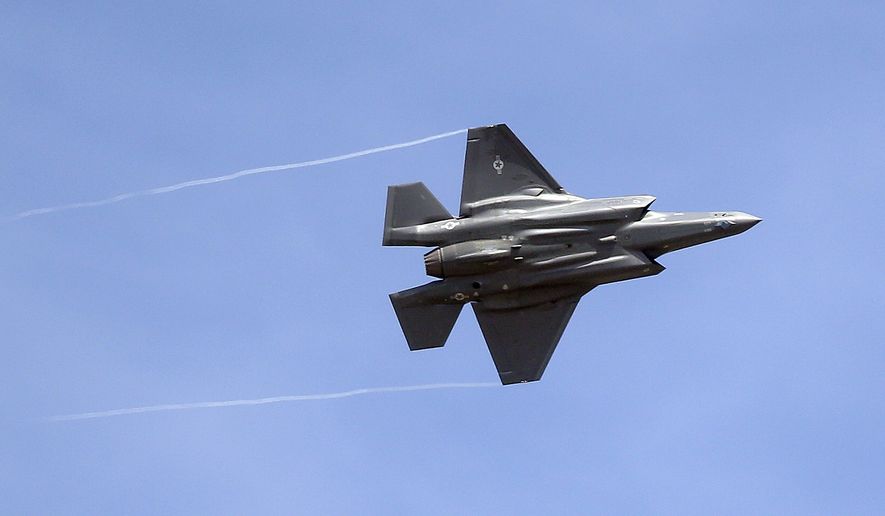Congressional defense lawmakers officially barred deliveries of the fifth-generation F-35 Joint Strike Fighter to Turkish forces, inserting the ban into the final version of the Pentagon’s budget blueprint for the upcoming fiscal year.
House and Senate conferees adopted the legislation, which prohibits shipments of the advanced, multi-role jet fighter to Ankara’s forces until the Pentagon delivers “an assessment of a significant change in Turkish participation in the F-35 program, including the potential elimination of such participation,” defense lawmakers wrote.
Defense lawmakers also demanded the immediate release of U.S. Pastor Andrew Brunson, as well as any other “U.S. citizens wrongfully or unlawfully detained in Turkey,” in legislative language included in the defense spending bill, now headed to the White House for President Trump’s signature.
Brunson was charged with espionage and having links to terror groups. According to Turkish prosecutors, Mr. Brunson allegedly worked with U.S.-based cleric Fethullah Gulen to overthrow Mr. Erdogan in 2016, and also assisted the outlawed Kurdistan Workers Party, or PKK.
The F-35 has been used as a geopolitical pawn between Washington and Ankara, with congressional lawmakers looking to pressure Turkey over its increased military ties to Russia. Last week, a top U.S. diplomat warned Turkey of the “serious downside” to its proposed deal to buy Russian-made anti-missile weapons, saying sanctions levied by Congress over the deal would only be the beginning if Ankara presses forward.
“We want to make sure the systems acquired by our allies remain supportive of our [other] allies,” said Acting Assistant Secretary of State for Political-Military Tina Kaidanow. “We want them to understand the real, serious downsides of making this acquisition from the Russians,” she said during a briefing with reporters from the Farnborough air show in the United Kingdom.
The State Department has yet to take action against Turkey, a NATO ally, over its plan to field the Russian-made S-400 missile defense system. Opponents of the S-400 inside and outside the Pentagon deal say Ankara’s decision to field the Russian-made anti-aircraft missile system will draw Turkey deeper into Moscow’s growing sphere of influence in the Middle East.
“It’s not just about sanctions,” Ms. Kaidanow said at the time. “We are concerned that purchasing these systems from the Russians will be supportive of their actions” in the Middle East, Eastern Europe and other potential flashpoints around the world, she added.
The move would also reduce military interoperability between Turkey, a NATO ally, and its partners in the Cold War-era alliance. However, it also blocks Moscow from gaining significant insight into F-35 operations — which remains one of Washington’s closely guarded military secrets.
• Carlo Muñoz can be reached at cmunoz@washingtontimes.com.




Please read our comment policy before commenting.